UPDATE | 2019年01月30日
外国人留学生のみなさんが「短期大学」に進学するための、基本情報です。日本の短期大学の特徴をはじめ、主な出願条件、入試方法、かかる費用などをおおまかに確認して、短期大学進学のための準備を始めましょう。
目次
日本の短期大学には、地方自治体などが設置する「公立」、学校法人または株式会社が設置する「私立」の2つの種類があります。現在、国立の学校はなく、ほとんどが私立の学校です。
修業年限は、原則2年間ですが、医療技術や看護などの専門的国家資格等を取得することが目的となる学校の場合は3年間となります。
短期大学は、地域の身近な高等教育機関として、短期間の間に大学で身につけるべき教養とそれを基礎とした専門教育が行われる教育機関です。
日本の短期大学は創設以来、特に女性の高等教育の普及や実践的職業教育の場としての役割を果たしてきました。そのため、現在でも約30%の学校が女子短期大学です。さまざまな分野の短期大学がありますが、女性が多いことから女性の就労が多い幼稚園教諭、保育士、栄養士、介護福祉士の養成を行う学校が多くあります。
大学が併設されている学校の一部で「短期大学部」という名前がつく学校がありますが、大学の学部に並ぶひとつの部門ではなく、「短期大学」も「短期大学部」の名称がつく学校もいずれも同じ短期大学となります。
短期大学と大学の違いは、その指導方針です。短期大学の指導方針で特徴的なところは、①学生数が少なくきめ細やかな教育や指導ができる「少人数教育」、②入学予定者を対象とした基礎学力の補強や学生生活への適応をサポートする「導入教育」、③学業だけでなく一人ひとりの学生生活をサポートする「担任制度」、④教養教育、専門教育、職業教育から資格取得や就職支援まで幅広く行う「一貫指導」などがあげられます。
[PR]
修業年限や取得できる資格など、専門学校と近い役割を担っているように見える短期大学ですが、短期大学のメリットとしては以下のようなことがあげられます。
1:「専攻科」の設置
専攻科は高等教育機関のうち「大学」「短期大学」「高等専門学校」のみ設置が可能な教育課程です。
卒業生もしくは卒業生と同等の学力を有する人に対して、より深い研究を行える教育課程で、就業年数は1年以上。設置されているかどうかは学校ごとに異なります。
さらに、「認定専攻科」と呼ばれる大学教育に相当する水準の教育を行っていると認定されている専攻科を修了すると、審査の後に大学卒業に相当する学士の学位を取得することもできます。
2:卒業後の幅広い進路
専門学校の場合、卒業後は学んだ内容に直結した職業に就く場合がほとんどですが、短期大学の場合は就職はもちろん、大学編入や専攻科進学などたくさんの選択肢があるところが特徴です。
実際に、短期大学卒業生のうち約10%は進学をしています。また、大学編入者のうち約50%が短期大学からの編入学です。これは大学に併設をされている短期大学が多く、編入学しやすい環境にあるためです。
3:地域に密着した教育機関
短期大学の果たす教育目的のひとつに「地域コミュニティの基盤となる人材の養成」があげられます。
短期大学進学者は自県内進学率が高いこともあり、短期大学は「地域の学生が学び、地域ビジネスに貢献すること」を目指しています。そのため、地域との関係性が強く地域の企業からの求人が多くあります。
日本国内の特定の地域での進学、就職を考えている留学生には大きなメリットだといえるでしょう。
以下のような条件のいずれかを満たす必要があります。
1:外国において、学校教育における12年の課程を修了した者
2:外国における、12年の課程修了相当の学力認定試験に合格し、18歳に達した者
3:日本において、外国の高等学校相当として指定した外国人学校を修了し、18歳に達した者
4:外国において、11年以上の、文部科学大臣に指定された課程を修了した者
5:国際バカロレア、アビトゥア、フランスのバカロレア資格を保有するか、GCEAレベル試験について、学校が個別に定める成績を満たし、18歳に達した者
6:国際的な評価団体(WASC、CIS、ACSI)の認定を受けた教育施設の12年の課程を修了し、18歳に達した者
7:高等学校卒業程度認定試験に合格し、18歳に達した者
8:学校教育法音定める上記以外の入学資格のいずれかの条件を満たす者
9:学校において個別の入学資格審査により、高等学校を卒業した者と同等以上のお学力があると認めた者で、18歳に達した者
※1~3について、12年未満の学校教育課程の場合、かつ外国において、指定された課程を修了していない場合は、さらに指定された準備教育課程または研修施設の課程等を修了することが必要となる場合があります。
以下の条件を満たし卒業した者には、「短期大学士」の学位が取れます。
| 取得単位 | |
|---|---|
| 2年課程 | 62単位以上 |
| 3年課程 | 93単位以上 |
取得単位の中には、学科指定の必修科目が含まれます。また、資格取得にあたり一定期間の実習が必要となる場合があります。
下記の一覧表は、日本の短期大学の初年度納入金平均額(日本人学生)です。
初年度納入金額とは、一般的に入学金、授業料、施設・設備費などを含んだ入学する年にかかる費用で、ここに表示されている金額は奨学金などを適用する前の費用です。
| 公立 | ¥604,973 | |
|---|---|---|
| 私立 | 芸術学 | ¥1,349,001 |
| 工学 | ¥1,244,692 | |
| 理学・農学 | ¥1,131,515 | |
| 人文学 | ¥1,094,436 | |
| 教育学・保育学 | ¥1,101,093 | |
| 家政学 | ¥1,098,724 | |
| 法学・商学・経済学・社会学 | ¥1,080,987 | |
| 体育学 | ¥1,043,429 | |
出典:文部科学省/JASSO(2018-2019 Student Guide to Japanより)
これらの初年度納入金以外に、出願の時にかかる入学検定料、海外から日本に受験をしにくる場合には渡航費と滞在費、入学する短期大学のそばで生活をするようであれば引っ越しや入居のための費用などがかかってきます。
奨学金によってはこれらに利用できないものもありますので、学校に収める金額以外にもいつ何にどれくらいの費用がかかるのか、費用のサポート制度はいつどれくらい使えるのかを調べておくとよいでしょう。
各学校によって必要提出書類は異なります。志望校が決まったら、必ず募集要項やウェブサイト、直接問い合わせなどで必要書類の確認をするようにしてください。
多くの短期大学入試で一般的に必要となる書類は、以下のとおりです。発行に時間がかかる書類や、郵送にかかる時間も地域によって異なりますので、余裕を持って準備をしましょう。
1:入学願書(学校指定のもの)
2:自国の高等学校の卒業(見込)証明書
3:自国の高等学校または最終学校の成績証明書
4:自国の出身高等学校の校長または教員の推薦状
5:日本語能力または英語能力証明書
日本語能力の証明書としては、「日本留学試験(EJU)」「日本語能力試験(JLPT)」など、英語能力の証明書としては「TOEFL®」「TOEIC®」「IELTS」などの結果の提出が求められる場合が多いです。
英語のみで卒業ができる短期大学や学科もありますが、日本の短期大学の多くは日本語のみで講義を行います。もし日本語に不安がある場合には、受験をする前に短期大学附属の「留学生別科(日本語別科)」への入学を検討してみるのもひとつの方法です。
日本人の受験生と同じ試験を受けることも可能ですが、留学生向けの特別な試験を実施している学校がほとんどです。
試験内容は短期大学ごとに異なりますが、多くの場合、下記のいくつかを組み合わせて行われます。
1:書類審査(出願書類)
2:学力試験(指定科目の筆記試験)
3:面接(直接またはオンライン)
4:小論文・作文
5:その他の能力・適性等に関する検査
6:大学入試センター試験
7:実技(ピアノや作画など学科により異なる)
日本の短期大学は、出願の時点で希望する学部や学科を決めておく必要があります。
入学後に別の学科やコースへ編入できる場合もありますが、編入のための試験を受ける必要があったり、編入できる学部や学科などが決まっていたりと、とても困難です。
早いうちから自分が学びたい分野のある学部や学科は何か、どの学校に行けば学べるのか、奨学金制度や寮の有無など、留学生のみなさんへのサポート制度が充実しているかどうかを比べてみて、2年間または3年間通い続けることができそうかどうかを調べることが大切です。
どんな学校があるのか調べるときには、今通っている学校の先生や、知り合いの人に相談することももちろん大切ですが、「アクセス日本留学」のようなウェブサイトで条件を指定して学校検索をしてみたり、直接短期大学の担当者と話ができる「外国人学生のための進学説明会」に参加をしてみましょう。
そして、いくつか気になる学校が見つかったら、可能な限り「オープンキャンパス」などに参加をして、自分の目で見てみるとよいでしょう。実際に学校へ行ってみることで、また違った魅力が見えてくるかもしれません。

アクセス日本留学 編集部。外国人留学生のみなさんが日本の学校を見つけるための資料請求ができるWebサイト「アクセス日本留学」の運営や「外国人留学生のための進学説明会」を開催しています。
[PR]
[PR]